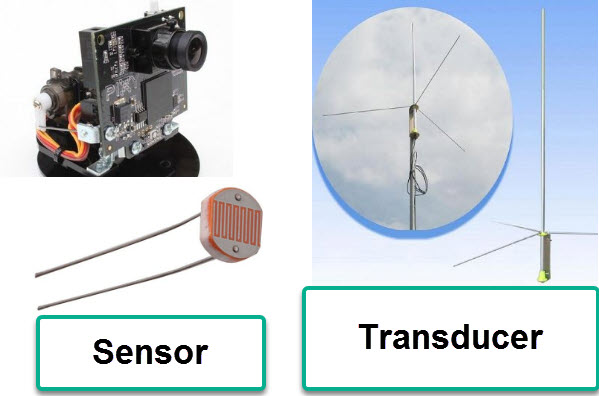What is a sensor and what is a transducer?
Sensor
Sensor is a tool to detect/measure a physical quantity in the form of mechanical, magnetic, heat, light and chemical variations by being converted into voltage and electric current. The sensor itself consists of a transducer with or without a signal amplifier/processor formed in one sensing system.
In the control system and robotics environment, sensors provide similarities that resemble eyes, hearing, nose, tongue which will then be processed by the controller as the brain. Sensor is a transducer that is used to detect the condition of a process.
Example; The eye is a vision sensor, the ear is a hearing sensor, the skin is a touch sensor in the human body, while the thermistor is a heat sensor, LDR (light dependent resistance) is a light sensor, in an automation system.
Transducer
Transducer is a device that converts an energy from one form to another, which is an important element in the control system. In general, transducers are distinguished by two working principles, namely: first, input transducers can be said that this transducer will convert non-electrical energy into electrical energy. Second, the Output Transducer is the opposite, converting electrical energy into non-electrical forms of energy.
William D.C, (1993), said a transducer is a device which, when driven by an energy in a transmission system, will transmit the energy in the same form or in a different form to the next transmission system. This energy transmission can be electrical, mechanical, chemical, optical (radiation) or thermal (heat).
Example; A generator is a transducer that converts mechanical energy into electrical energy, a motor is a transducer that converts electrical energy into mechanical energy, and so on.

